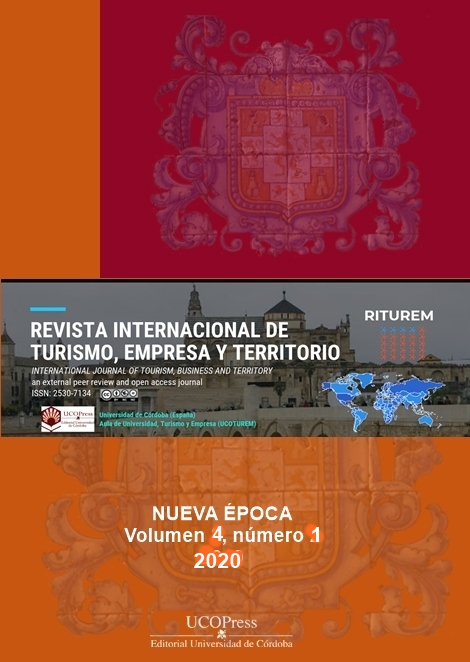Impact measurement and tourism planning: technology or politics?
Main Article Content
Abstract
In recent years manifold systems of indicators have been developed for analysing the economic, social and environmental impacts of tourism, and the idea that the main task of Destination Management Organizations should be to measure and manage tourism impacts using tools such as balanced scorecards has found widespread acceptance. In this context, the development of Smart Destinations is considered to be a way to organize tourism planning that would allow decision makers to make better decisions and maximize the balance of positive and negative impacts of tourism. This paper presents a theoretical contribution that stems from a project that developed a system of indicators for measuring the impact of tourism in the Canary Islands using a data visualization device, whose usefulness was validated by stakeholders. Project results suggest that the benefit of Big Data tools for decision making in tourism planning could depend upon the governance structure, and that is necessary to embed socially and politically these tools for stakeholders to perceive them as useful devices for decision making and not as mere devices for imposing interests.
Keywords: tourism impacts; smart destinations; balanced scorecards; strategic management; critical management studies; Canary Islands,
Downloads
Article Details
Copyright Notices Proposed by Creative Commons
Proposed policy for journals offering deferred open access
Those authors who have publications with this journal, accept the following terms:
1. The authors will retain their copyright and guarantee to the journal the right of first publication of their work, which will be simultaneously subject to the Creative Commons Recognition License CC BY-NC 4.0 (Creative Commons — Attribution-NonCommercial 4.0 International — CC BY-NC 4.0 ) hird parties to share the work provided that its author and its first publication is indicated this journal and no commercial use is made.
2. Authors may adopt other non-exclusive licensing agreements for the distribution of the published version of the work (e.g., deposit it in an institutional telematics file or publish it in a monographic volume) provided that the initial publication is indicated in this journal.
3. Authors are allowed and recommended to disseminate their work over the Internet (e.g. in institutional telematics files or on their website) before and during the submission process, which can produce interesting exchanges and increase citations of the published work. (See The effect of open access: http://opcit.eprints.org/oacitation-biblio.html.
